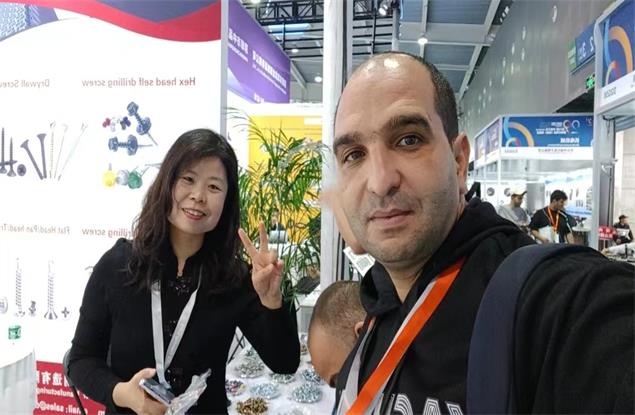flat metal washer manufacturing industry trends and production insights for 2023
The Role of Flat Metal Washer Factories in the Manufacturing Industry
Flat metal washers, although often overlooked, play a crucial role in numerous applications across various industries. These seemingly simple components serve essential functions, such as distributing loads, reducing friction, and preventing leaks. As industries continually evolve, the demand for high-quality flat metal washers has led to the emergence and growth of specialized factories dedicated to their production. This article delves into the workings of flat metal washer factories, their significance in manufacturing, and the future of this industry.
Understanding Flat Metal Washers
Flat metal washers are typically circular disks with a hole in the center, designed to be placed under nuts, bolts, and screws. Their primary purpose is to distribute the load of fasteners evenly, preventing damage to the surfaces being fastened and ensuring stability in mechanical assemblies. Furthermore, they help to prevent loosening due to vibrations and can also serve as spacers in various applications.
The materials used in the production of flat metal washers often vary, with options ranging from steel, stainless steel, brass, and aluminum to specialized alloy compositions. The choice of material significantly impacts the washer's performance, corrosion resistance, and overall durability.
The Manufacturing Process
The manufacturing of flat metal washers involves several key processes, typically carried out in factories equipped with advanced machinery
1. Material Selection The process begins with selecting the appropriate metal, which is often available in sheet or coil form. The chosen material must meet specific industry standards to ensure quality and performance.
2. Cutting Once the material is selected, the next step is to cut it into circular disks. This is typically done using punches or laser cutting technology, ensuring precision and efficiency.
3. Punching and Forming After cutting, the washers are punched to create the central hole. This process can be automated for large production runs, allowing factories to produce thousands of washers in a short time.
4. Finishing The washers may undergo various finishing processes to enhance their performance characteristics. This could include heat treatment for increased strength, surface treatments for corrosion resistance, or coating processes to improve appearance and functionality.
flat metal washer factories

5. Quality Control Quality assurance is a critical step in the manufacturing process. Factories implement rigorous testing protocols to ensure that each washer meets the required specifications and standards. This may include dimensional checks, strength tests, and corrosion assessments.
6. Packaging and Distribution Finally, the finished flat metal washers are packaged and prepared for distribution to clients across different sectors, including automotive, construction, and electronics.
Industrial Significance
Flat metal washer factories not only contribute to the manufacturing of essential components but also support a wide range of industries. For instance, in the automotive sector, washers are vital for vehicle assembly, ensuring that components remain secure and reliable under various operating conditions. In construction, they play a significant role in ensuring the integrity of structures, while in electronics, they help prevent short circuits and ensure the proper functioning of devices.
Moreover, the factories themselves create jobs and drive local economies. The skilled workforce required to operate machinery, manage production processes, and oversee quality control contributes to societal growth and technological advancement.
Future Trends
As technology continues to advance, flat metal washer factories are likely to experience significant changes. Automation, including the use of robotics and AI-driven systems, promises to enhance efficiency and reduce production costs. Moreover, the growing emphasis on sustainability is pushing factories to explore eco-friendly materials and processes, reducing waste and minimizing environmental impact.
In addition, the increasing demand for customized solutions in various industries is leading factories to adopt more flexible manufacturing processes. This shift will allow them to cater to specific client needs, producing specialized washers tailored to unique applications.
Conclusion
Flat metal washer factories are integral players in the manufacturing ecosystem, providing essential components that ensure the reliability and safety of countless products. As industries evolve, these factories must adapt and innovate, leveraging new technologies and practices to meet emerging demands. In doing so, they will continue to play a vital role in the world of manufacturing for years to come.
-
Top Choices for Plasterboard FixingNewsDec.26,2024
-
The Versatility of Specialty WashersNewsDec.26,2024
-
Secure Your ProjectsNewsDec.26,2024
-
Essential Screws for Chipboard Flooring ProjectsNewsDec.26,2024
-
Choosing the Right Drywall ScrewsNewsDec.26,2024
-
Black Phosphate Screws for Superior PerformanceNewsDec.26,2024
-
The Versatile Choice of Nylon Flat Washers for Your NeedsNewsDec.18,2024










